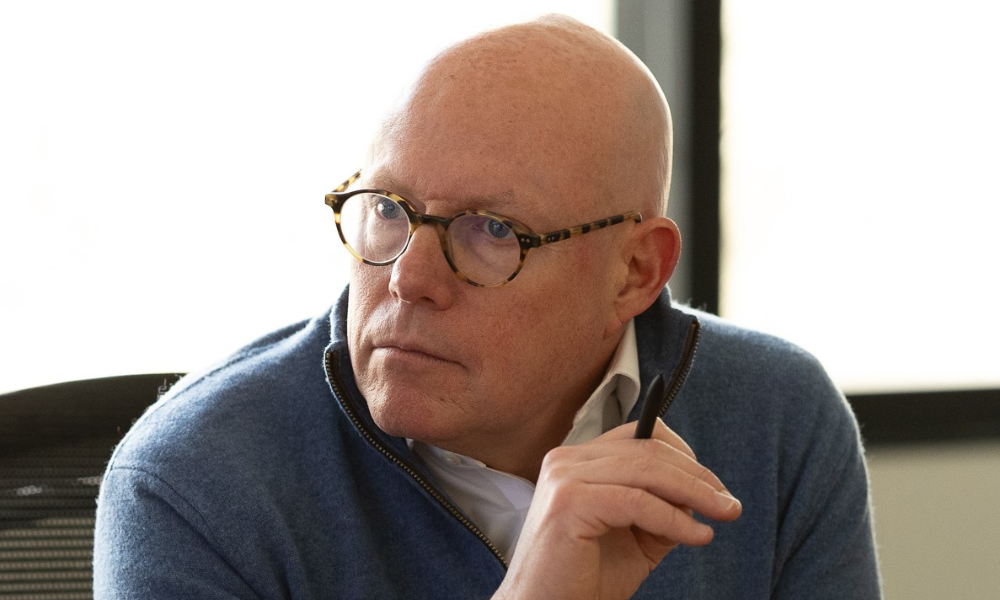


As private equity investments continue to fuel record-breaking M&A activity in the RIA space, the CEO of a 102-year-old family office warns that a crash in deal valuations could be inevitable.
“Private equity is going to pay more these days, they are throwing around cash like drunken sailors in port, and the multiples don't make any economic sense. And at some point this is going to come crashing down, but it hasn't yet,” Pitcairn CEO Andrew Busser told InvestmentNews.
Pitcairn was founded in 1923 by the sons of industrialist John Pitcairn. Today, the firm serves about 140 wealthy family clients. Pitcairn’s new RIA entity, Pitcairn Wealth Advisors, launched earlier this year upon the firm’s acquisition of the Baltimore-based RIA Brightside Partners. Busser expects Pitcairn’s RIA to hold $10 billion AUM by the end of this year or early 2026 once the firm transfers assets from its existing Pennsylvania-based trust company.
“Even though we've been around for 100 years, this is the first acquisition we've ever done,” Busser said of the Brightside deal. “So while you have all these private equity backed roll-ups out there doing acquisitions once a month, we do them once every century.”
Since 2020, the median adjusted EBITDA multiple for valuing RIAs has increased by nearly 40%, according to the RIA consulting firm Advisor Growth Strategies. In that time, average adjusted EBITDA multiples surged from 8x to 11x, representing “the influx of demand in the space, primarily driven by outside capital,” said Advisor Growth Strategies’ partner, Brandon Kawal.
“We will likely see a decline in PE multiples for RIA platforms, and therefore, a moderation of multiples paid for sub-acquisitions,” Kawal said. “I just can't tell you that we will see it any time soon. The demand is too high, and there is too much value creation out there for me to see it anytime soon - subject to a black-swan event in the market.”
Dan Seivert, CEO of Echelon Partners, an investment bank for the wealth management industry, questions if RIA valuations have yet hit their peak.
"Many of the private equity investors helping fuel the recent M&A boom have still been able to realize very attractive IRRs (internal rate of returns) in the 30% range or higher in many cases," Seivert says. "Those arguing that valuations are not high enough would point to these very high IRRs and the fact that most PE firms underwrite investments to an IRR of ~20% and use that gap as an argument that the acquirers can offer even more for their best acquisitions."
Busser describes cultural fit as the “number one, two, and three” priorities for Pitcairn’s RIA when it considers M&A expansion. One wealthy family client said they picked Pitcairn because, “at most firms, a quarter is three months, and at Pitcairn a quarter is 25 years, and that matches our time horizon,” explained Busser, contrasting to the much shorter time horizons of private equity investments.
“Since we announced this Brightside deal, the inbound inquiries we've gotten from firms about potentially acquiring them has shot through the roof,” Busser added. “We've had more inquiries in the last five months than we've had in our entire history.”
Rick Pitcairn remains chief global strategist at Pitcairn, where his family assets are about 5% of the firm’s total $10 billion AUM. By transitioning from a state trust to RIA model, Pitcairn’s clients gained added security of the firm being SEC regulated, said Busser, adding that the nationally regulated RIA structure better suited Pitcairn’s expansion to serving clients from 40+ states.
“We are owned 70% by the Pitcairn family, 20% by the Sorbara family, and 10% by management,” said Busser. “Everybody wants to own this firm forever, so we don't have any interest in a private equity firm that wants to own it for four or five years and put a lot of pressure on EBITDA for the short run so they can sell it to somebody else for five years. It's just it's not compatible with our strategy or timeline or anything else that we do. Even a minority stake from private equity would not be a good fit for us.”

Advisors can set their practice apart and win more business with a powerful graphic describing their unique business and value proposition.

The Labor Department's reversal from its 2022 guidance has drawn approval from crypto advocates – but fiduciaries must still mind their obligations.

With $750 million in assets and plans to hire a RIA Growth Lead, Autopilot is moving beyond retail to court advisors with separately managed accounts and integrations with RIA custodians such as Schwab and Fidelity.

Elsewhere on the East Coast, a Boca Raton-headquartered shop has acquired a fellow Florida-based RIA in "a natural evolution for both organizations."

After advising on nearly $700 million in retirement assets, 27-year veteran Greg Mykytyn is bringing his expertise in ESOP and 401(k) plans to the national RIA in Texas.
How intelliflo aims to solve advisors' top tech headaches—without sacrificing the personal touch clients crave
From direct lending to asset-based finance to commercial real estate debt.
